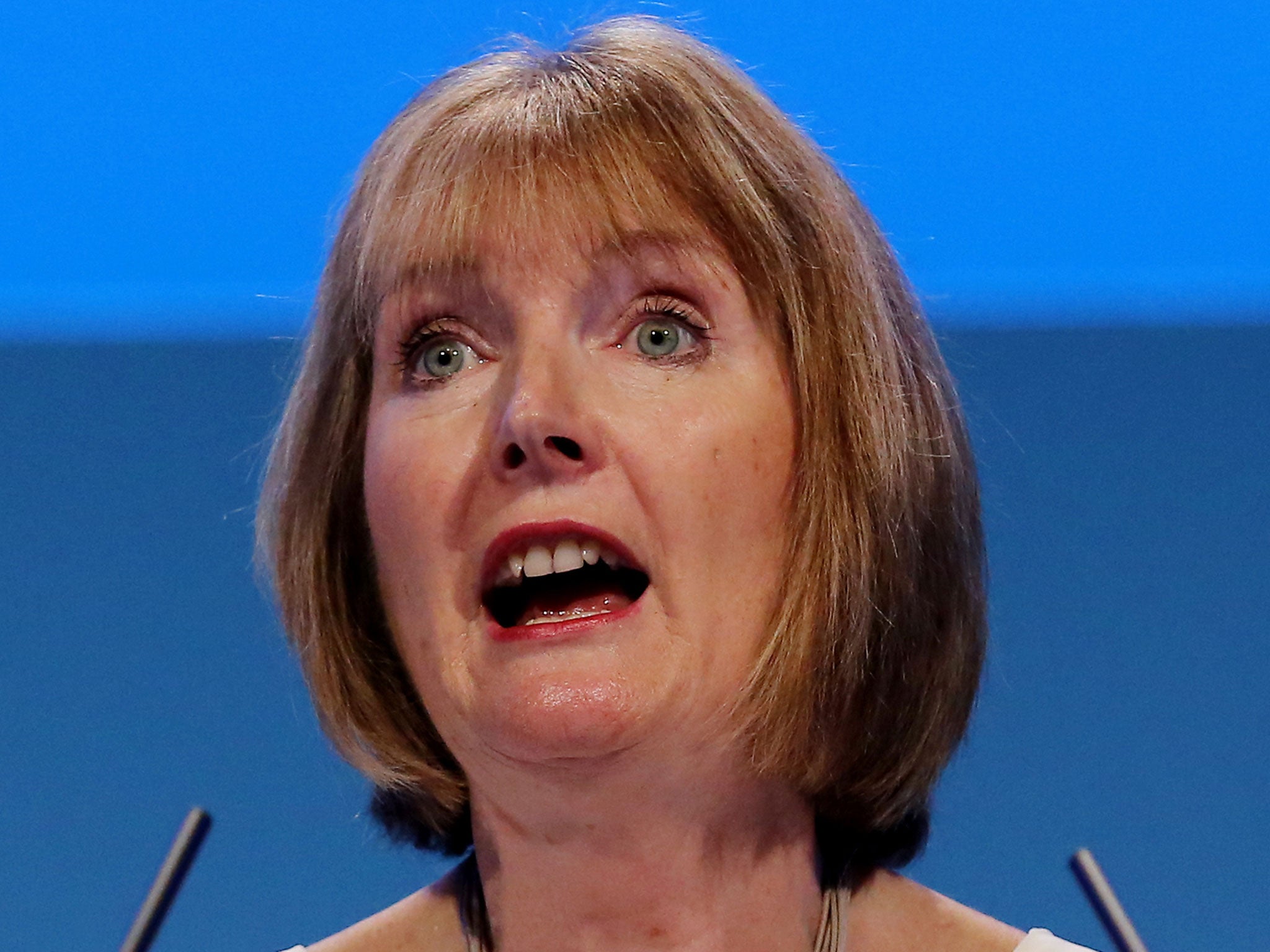Labour MPs set to defy Harriet Harman by voting against Tory welfare reforms
Only one of four leadership candidates agrees with Harman on child tax plans

Your support helps us to tell the story
From reproductive rights to climate change to Big Tech, The Independent is on the ground when the story is developing. Whether it's investigating the financials of Elon Musk's pro-Trump PAC or producing our latest documentary, 'The A Word', which shines a light on the American women fighting for reproductive rights, we know how important it is to parse out the facts from the messaging.
At such a critical moment in US history, we need reporters on the ground. Your donation allows us to keep sending journalists to speak to both sides of the story.
The Independent is trusted by Americans across the entire political spectrum. And unlike many other quality news outlets, we choose not to lock Americans out of our reporting and analysis with paywalls. We believe quality journalism should be available to everyone, paid for by those who can afford it.
Your support makes all the difference.Dozens of Labour MPs are preparing to defy their acting leader Harriet Harman next week and vote against Conservative welfare reforms.
On Monday Ms Harman urged her Parliamentary colleagues to abstain in the vote on Government proposals that would restrict child tax credits to two children and reduce the benefits cap to £20,000 outside London.
Ms Harman told a meeting of MPs that voting against the welfare measures would be “hung around our neck” in the future by the Conservatives and allow the party to be portrayed as the party of benefits.
But she is facing strong opposition to the plan from both backbench MPs and three out of the four candidates to become the next leader.
After the meeting, several MPs warned that the party was “deeply divided” on what to do and that unless a compromise could be found significant numbers could defy the leadership.
“We are well aware there are significant differences of opinion on the subject,” Ms Harman’s spokeswoman said afterwards.
The row began at the weekend after Ms Harman used a television interview to claim Labour needed to “recognise why it was that the Tories are in government and not us” and drop its opposition to benefit restrictions.
But after a furious backlash from her own MPs, Mr Harman partially retreated and announced that Labour would abstain on the measures when they are voted on in the House of Commons next week.
But that appears not to be enough for the rebels who are demanding the leadership take a stronger line. The subject is due to be discussed by the Shadow Cabinet today.
Andy Burnham, Yvette Cooper and Jeremy Corbyn have all said they will oppose the proposals. Only Liz Kendall has said she would support the plan, arguing that the party needs to show it has changed “if was to regain the trust of voters”.
The issue came to head in a row between Ms Harman and Mr Burnham in a shadow Cabinet meeting last week.
“This is a difficult decision, at a difficult time for Labour on a deeply contentious issue,” a Labour insider said. “We’re returning to base camp and will not bind the hands of the next leader.”
Sources close to Mr Burnham said Ms Harman had taken “a ridiculous position” on the issue, while another senior Labour MP said many people felt deeply uncomfortable with the state imposing financial penalties on people having children.
“When you have the Department for Work and Pensions drawing up regulations to assess whether a woman has been raped so she can keep her benefits you know something is wrong with the law,” they said. “This is just not something Labour should be going along with.”
Appearing in a televised leadership debate on the BBC’s Victoria Derbyshire programme, Mr Burnham called on the party to resist the cuts. “We should oppose those changes. That’s how Labour makes itself relevant. Labour wins when Labour speaks for everyone, for the whole,” he said.
Ms Cooper added that tax credits were “an important part of making work pay” for many families while Mr Corbyn said the idea that you would have a lower level of benefit for the third, fourth and subsequent child in a family was “completely contrary to the principles of the rights of all children”.
Ms Kendall said: “People said to us ‘We don’t trust you on the money, we don’t trust you on welfare reform’. If we are going to oppose things, we have to put something else in its place because if we carry on making the same arguments we have done over the last five years, we will get the same result. We have to put forward a different credible alternative and Harriet was absolutely right to say that.”
Join our commenting forum
Join thought-provoking conversations, follow other Independent readers and see their replies
Comments